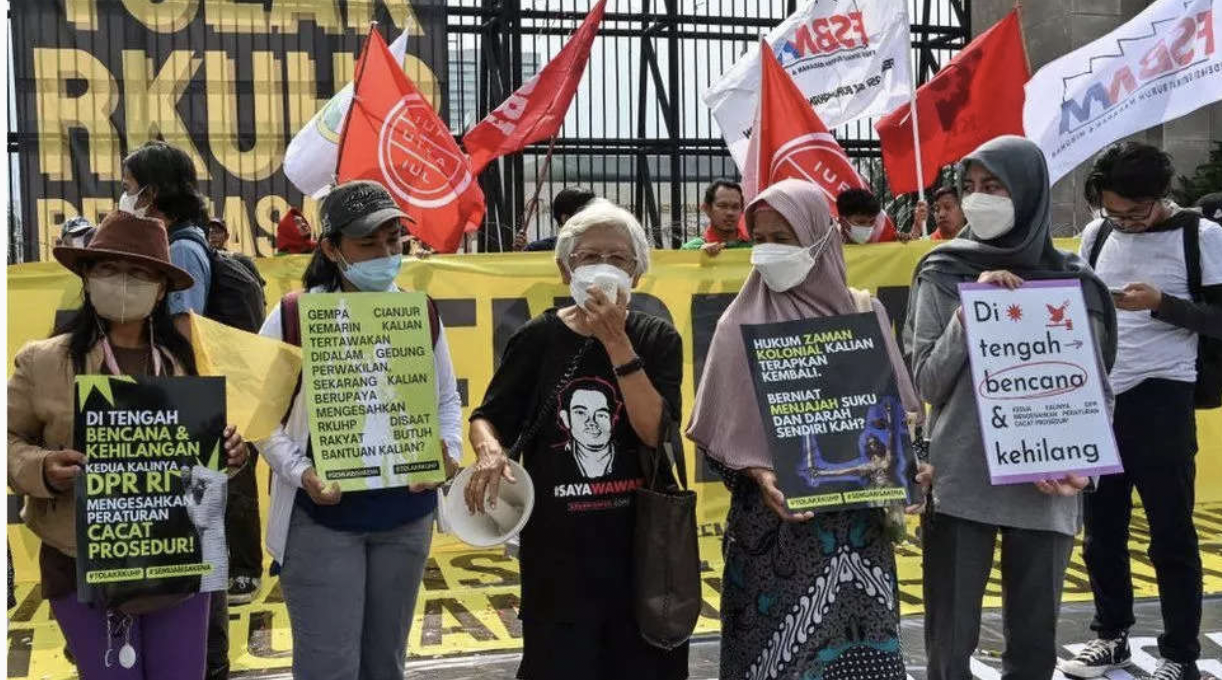
A History of the “Microchip War”
With the recent CHIPS Act coming out of the Biden-Harris administration that prioritizes private sector investment, many are concerned about the security of the U.S. and China’s rapidly advancing microchip ecosystem. What was once merely a concern over market values and tariffs has become a major international security issue. Understanding the history of what has become known as the contemporary “Microchip War” illuminates attitudes that parallel that of the Cold War and dictates the future of many international security issues.
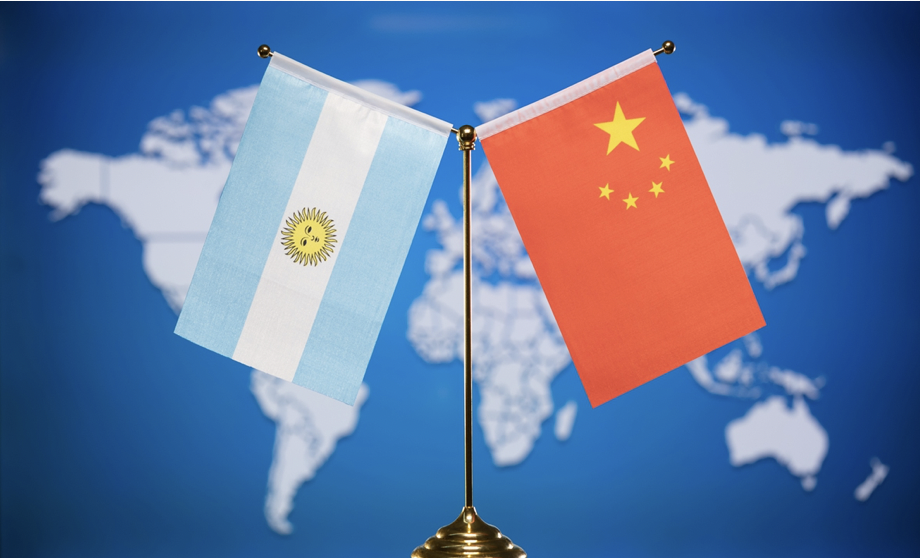
Argentina and the BRI: A Compelling or Concerning Partnership?
In February of 2022, Argentina became a member of China’s “Belt and Road Initiative” (BRI): a massive infrastructure project to increase Chinese investment and development projects throughout the globe, especially in East Asia, Europe, and Latin America. The BRI was launched in 2013 by President Xi Jinping and its name alludes to China’s first silk road which also served as an extensive trade and Western expansion effort by the country throughout the Han Dynasty. China has proven itself to be a leader in energy transition efforts towards renewable energy and critical minerals. The country is the largest supplier and financier of solar and wind equipment and projects in Latin American countries, and the largest producer of lithium-ion batteries in the world– dominating the industry at a production rate of 63 percent.

Digital Linguistic Extinction: The Icelandic Counter-Effort
The digital era has been largely successful at facilitating interconnectedness: the ability to send an email or update friends about life with a few mere taps on a keyboard is unprecedented in its reach and its accessibility. But in a near-paradoxical way, the digital era has also had disastrous effects on language diversity. Languages have been gradually becoming extinct for years, but projections indicate that 90% of all languages will go extinct over the next 100 years if current rates of loss persist.

Economics and Politics in Argentina’s High Stakes Elections
There’s an old saying that elections have consequences. For Argentina, this could never be more true. The country’s upcoming election in October is highly consequential as it faces issues regarding the economy, the environment, and politics.
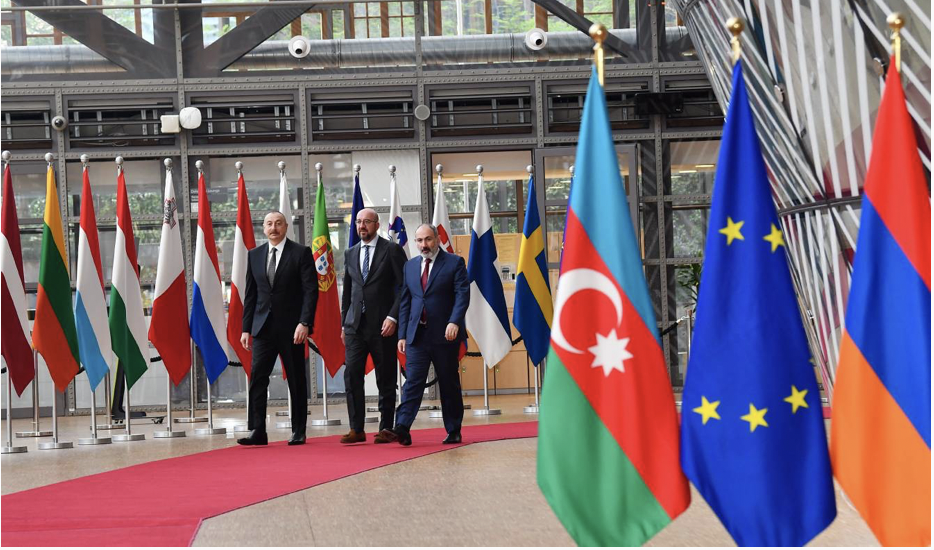
What the Shifting Armenia-Azerbaijan Conflict Reveals about the Consequences of Russia’s War in Ukraine
Late last month, in a sign of just how far Armenia’s previously strong relationship with Russia has fallen in the past year, MP Gagik Melkonyan of Armenia’s governing Civil Contract party warned that if Russian President Vladimir Putin were to visit Armenia in the near future, “he should be arrested,” adding that Putin should “stay in his country.”
This noteworthy statement came in the wake of the International Criminal Court (ICC)’s release of a warrant for Putin’s arrest on charges of war crimes in Ukraine, specifically regarding the forced deportation of Ukrainian children into Russia. Armenia has been in the process of finalizing ongoing plans to accede to the Court’s jurisdiction, which would (at least theoretically) obligate it to enforce the Court’s decision and extradite Putin to an ICC tribunal were he to enter the country.
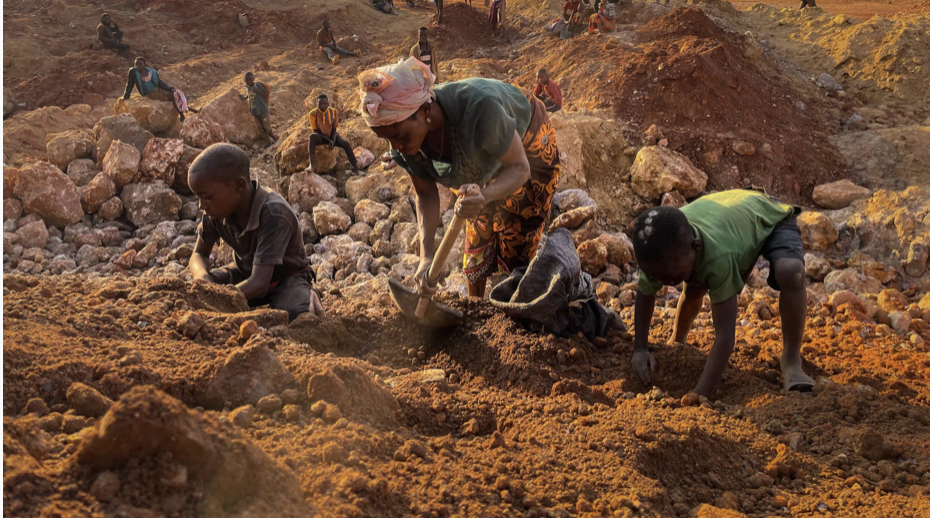
“Look to the East”: Neo-Colonialism in Africa
The power contest between China and the United States is by no means a new development, and over the last decade, an understudied playing field of conflict between these two global superpowers has been forming in Africa. The weapon of choice takes the form of not nuclear warheads, defense partnerships, or economic sanctions– but language. The violent history of colonialism and imperialism in Africa has spawned disillusionment with Western culture, and consequently, its languages. Hence, Africa has turned its attention to China. Since 2015, several African governments have steadily been adopting a “look to the East” policy, which involves the introduction, expansion, and acquisition of Mandarin Chinese on the African continent, primarily through the medium of education.

The U.S. Won’t Ratify this Children’s Rights Treaty, and Minors Are Being Given Life Sentences Because of It.
Prior to October 2015, only three United Nations (UN) member countries had not yet ratified the UN Convention of the Rights of the Child (CRC). These countries were Somalia, South Sudan, and the United States. Now, in 2023, the U.S. is the only nation in the world that has still not ratified the CRC. Former President Clinton signed the Convention in 1995, signaling support of its principles. However, the treaty was never passed on to the Senate for ratification because of opposition from key Senate actors.

How the Semiconductor Became a Dominator on the Geopolitical Stage
A cutthroat global rivalry between America, the world’s largest economy, and China, the second-largest economy since 2010, has been unfolding over the past decade. Although this century-defining contest between these two powerful nations is fought on many fronts, the U.S. has proven to be especially concerned about China’s access to semiconductors. These chips run computations inside every sort of computer, from smartphones to entire data centres. Semiconductors are essential for many of China’s technologies and therefore economic growth as well. Perhaps more pressingly, these chips are also indispensable for both nations’ military operations. With Xi Jinping’s rising aggressions toward Taiwan and potential alignment with Moscow in the war against Ukraine, the U.S. deems it crucial to hinder China’s military technologies.
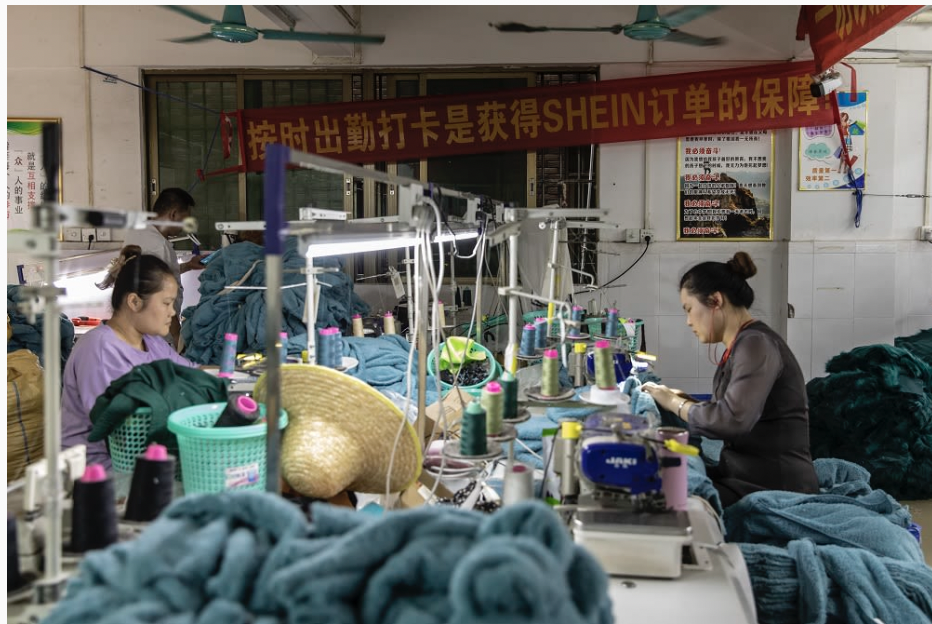
Wearing Clothes, Wearing Out Workers: SHEIN’s Secrets in Your Closet
WIth the rise of short-form content on social media platforms like TikTok and Instagram, clothing trends are cycling quicker and quicker. Because people can share what they wear faster than ever, new clothes stay in style for much shorter periods of time. This phenomenon has created what are known as “micro-trends.” For a clothing store, having a stylish assortment of options is essential to making money– but with the rise of micro-trends, keeping up now requires producing lots of new clothes faster and cheaper than ever. For consumers, this begs the question: how is that rapid rate of production possible?
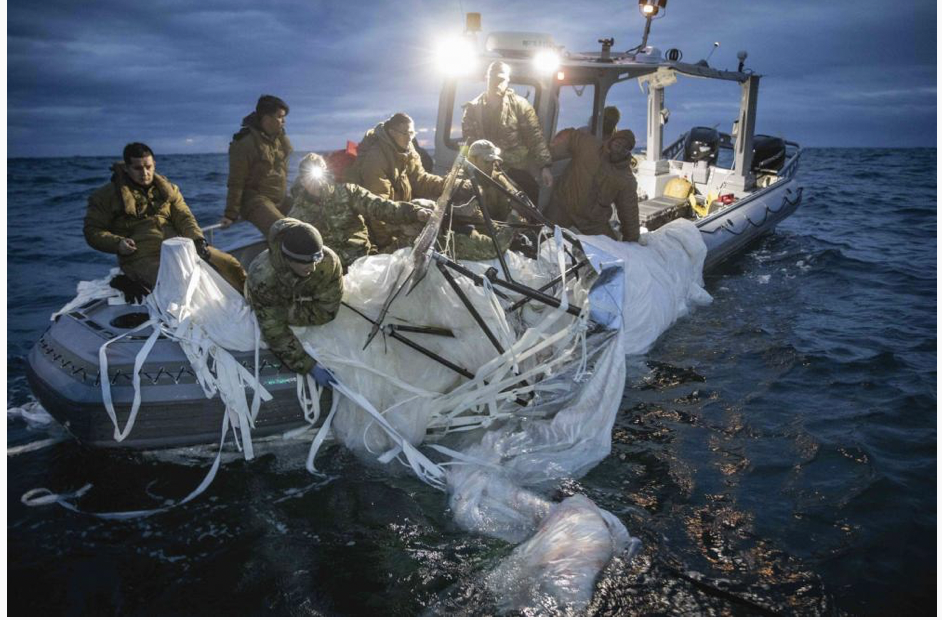
Chinese Spy Balloon: Insight Into U.S.-Chinese Relations
On February 1st, 2023, Americans across the country took to social media and expressed shock as a balloon the size of a passenger airplane hovered over cities in Montana. The balloon had entered United States airspace just a few days prior, passing the Aleutian Islands just south of Alaska. After three days of drifting east over the continental U.S., the balloon was shot down over U.S. territorial waters just off South Carolina’s shore. President Joe Biden remarked that he had given the order to have the balloon shot down days earlier when it was still in Montana, but the Pentagon advised him to wait until it went over the water to avoid civilian casualties from falling debris. The U.S. Navy sent recovery teams to retrieve the debris for research and analysis.
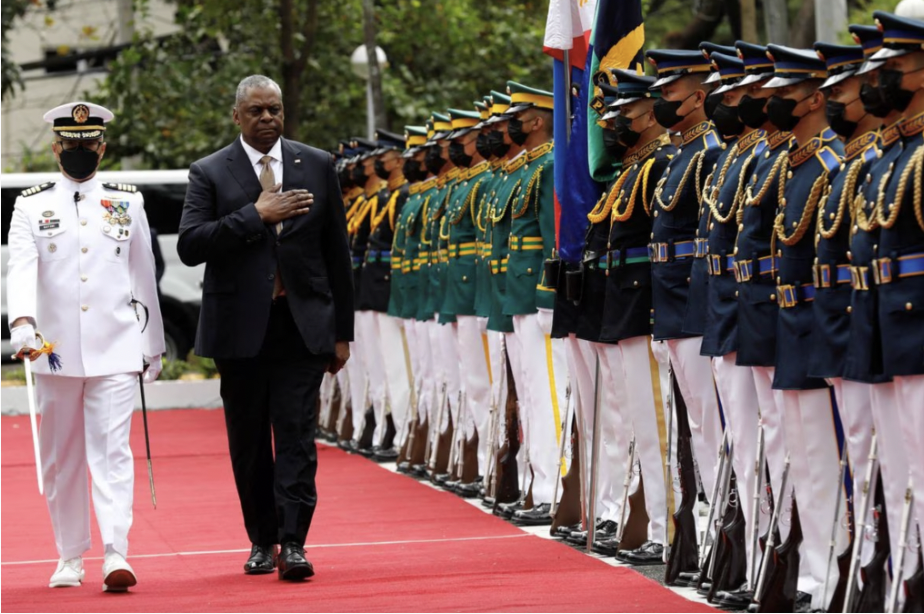
The New EDCA Sites and the U.S.-Philippines Alliance
On February 1st, a significant milestone in U.S.-Philippine relations was achieved. The U.S. Department of Defense stated that the Philippines was in agreement with the U.S. plan to establish four more military sites with the aim of expanding the Enhanced Defense Cooperation Agreement Project (EDCA), which facilitates joint military activities between the two countries and further supports a “strong and resilient alliance”. Through the agreement, the U.S. is allowed to assist with the Philippine military modernization, such as training, exercising, and the preposition of equipment, while stabilizing the alliance and reinforcing credible commitment to the Philippines.
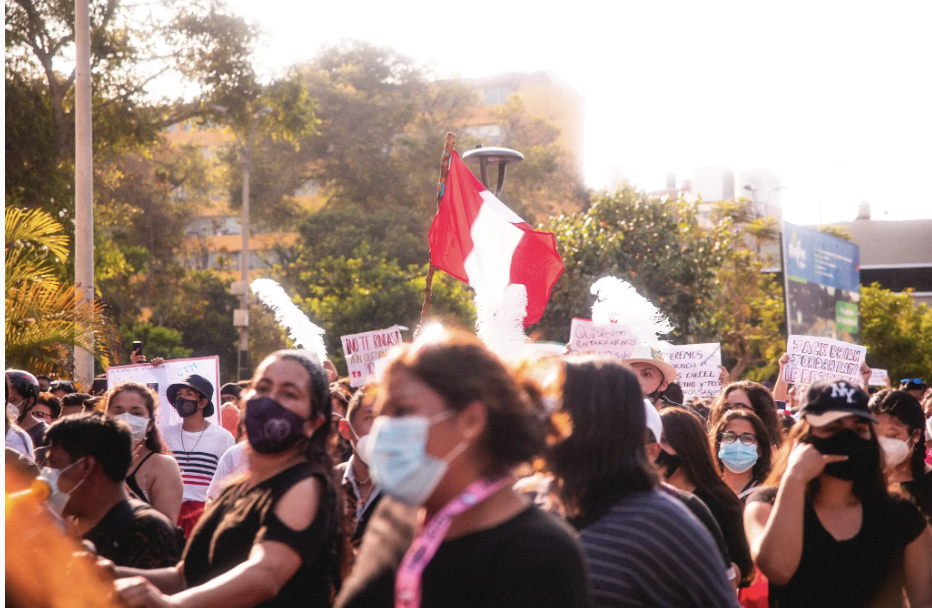



Just What the Doctor Didn’t Order: TikTok’s Algorithmic Diagnoses
Since its release in 2018, TikTok has become a global obsession. The video and photo content sharing app has been accompanied by a wealth of information on nearly every topic you can imagine: recipes, fashion trends, international news reporting, comedic sketches, singing, study tips, you name it– there is already a video about it. However, there is one content category that has psychologists, physicians, and sociologists on their toes: algorithmic mental illness diagnoses. Caroline Petronis, UC San Diego Sociology and Science Studies PhD student, sat down with Prospect to shed light on the increasing prevalence of algorithmic diagnoses and their role in our future.

The Tremors of War: Syria’s Aid Crisis
Even prior to the February 6th earthquake, northwestern Syria was ravaged by disease and razed by war. The Idlib province, bordering Turkey’s southern border, is the only major region in Syria still held by opposition forces. Much of the population in Idlib is made up of displaced Syrians, who have fled from Bashar al-Assad’s forces over the course of the twelve year civil war. However, support to the region is limited; the Syrian government alleges that aid— sent through the only official corridor to Idlib, Bab al-Hawa— violates its sovereignty. The earthquake’s destruction, in the wake of Syria’s perpetual political conflict, has exacerbated the dire humanitarian crisis in the Idlib province.

Two Top Female Leaders Resign Within Weeks of Each Other. Is the Culprit Domestic Unpopularity or the Patriarchy of Politics?
When New Zealand Prime Minister Jacinda Ardern announced her resignation on January 18th 2023, the world was shocked. "I'm leaving, because with such a privileged role comes responsibility… I know what this job takes. And I know that I no longer have enough in the tank to do it justice,” she stated in an interview. Almost exactly a month later, Scottish National Party (SNP) Leader Nicola Sturgeon announced her resignation as party leader, explaining to the media that “the nature and form of modern political discourse means there is a much greater intensity— dare I say it, brutality— to being a politician than in years gone by.”

The Lost Letters of Mary, Queen of Scots
Few historical figures have a story quite like Mary Queen of Scots. Mary was under a week old when she became the Queen of Scotland in 1542, and held that title until 1568 when she was forced to abdicate her throne in favor of her son, who was an infant at the time. However, upon her abdication, Mary was detained by her cousin Elizabeth Tudor, the Queen of England at that time. Mary spent the last 19 years of her life detained, until her execution in 1587. The time that Mary spent as a prisoner has fascinated historians for centuries, and on February 8th, the 436th anniversary of Mary’s death, possibly the most important breakthrough on the history of Mary Queen of Scots in a century was released to the public. An international team of cryptographers recently deciphered letters from the 16th century, shocking historians around the world.
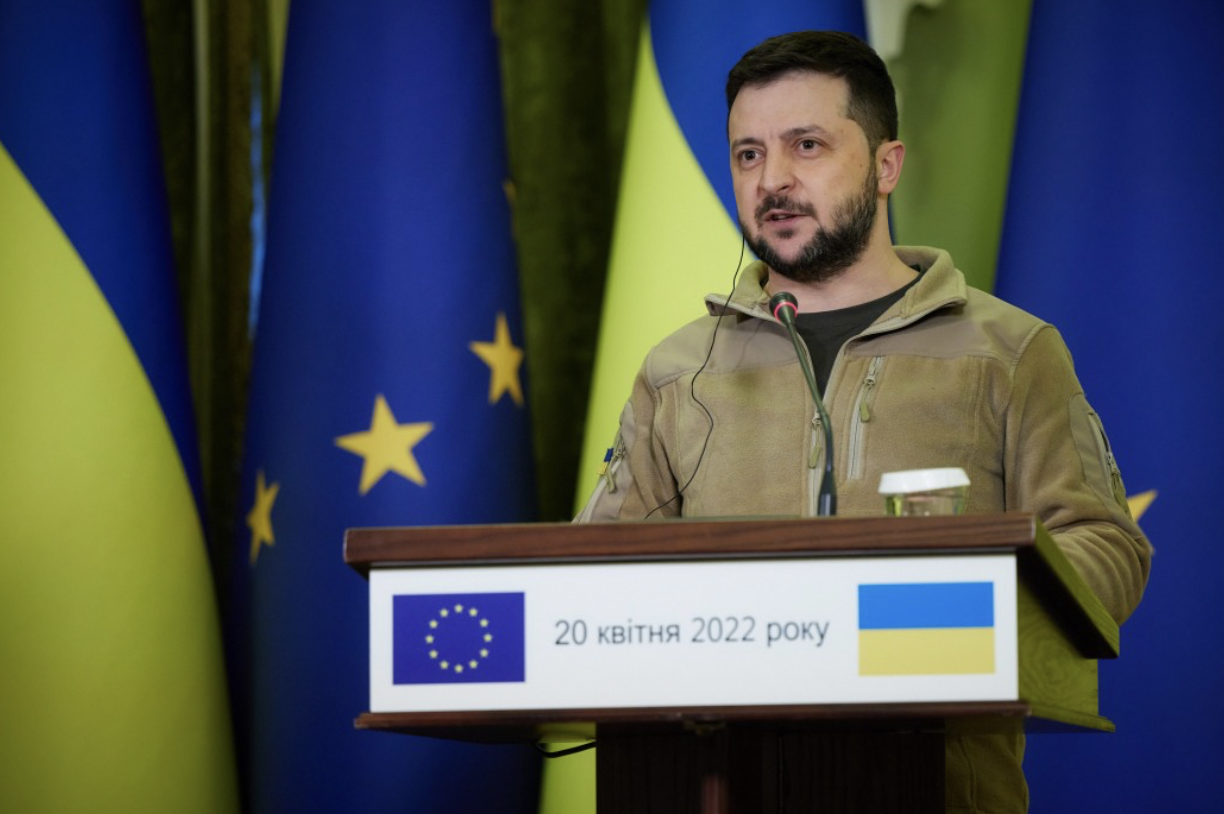
The Ukrainian War One Year Later: Tanks, NATO, and the Modern Rendition of David and Goliath
On February 4th, 2022, Russian forces launched a full-scale invasion of its neighbor Ukraine through a “special military operation.” Now, almost a year later, little has changed geographically, minus the huge displacement of Ukrainians and the overall destruction. But a simple look back would showcase the details that came into play, from Ukraine’s surprising defense, Russia’s military ineptitude, and the unified response from the West when the conflict shows no signs of slowing. Here are some things we can take away from the first year of the Ukrainian conflict.
